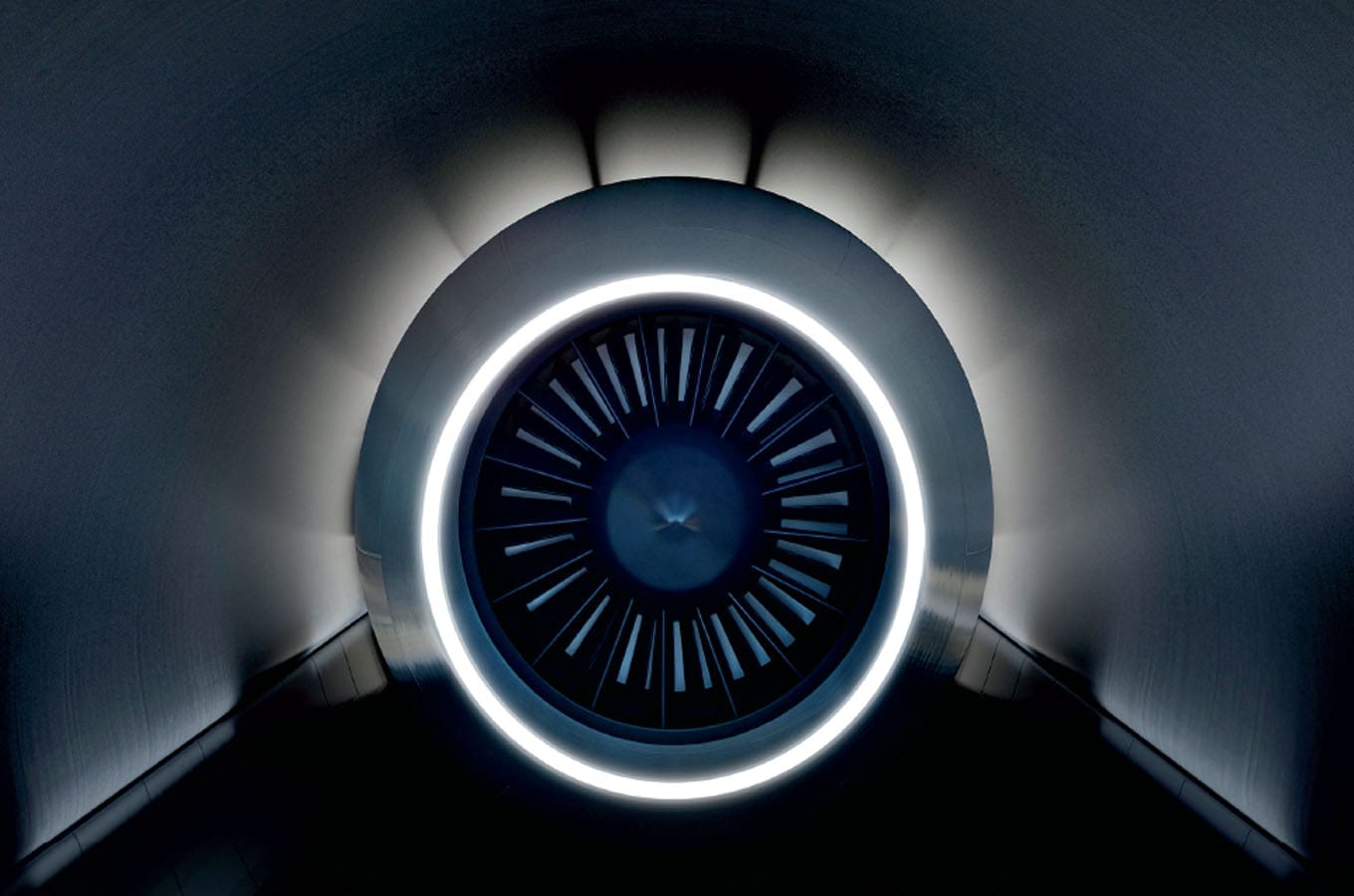In the Hyperloop: The Short-Haul Travel Market is Set for Disruption
Share

APEX Insight: Virgin has unveiled the first prototype of its Hyperloop One passenger pod that will transport passengers between Dubai and Abu Dhabi in just 12 minutes. Not a plane, train or automobile, Hyperloop is primed to disrupt the short-haul transportation market as a cross between all three.
Imagine traveling from San Francisco to Los Angeles in a half hour – without having to board an airplane. Such is the promise of Hyperloop, a high-speed transport design unveiled in 2013 by Elon Musk, the founder of Tesla and SpaceX. Aerospace mainstays as well as upstart startups have poured resources and brainpower into what is neither plane nor train. Indeed, Musk has described Hyperloop, which would move people and cars in pods through a vacuum tube, as “a cross between a Concorde and a railgun and an air hockey table.”
But Dirk Ahlborn, CEO of Hyperloop Transportation Technologies (HTT), says Hyperloop borrows most of its technology from the aerospace industry. “Our Hyperloop Transportation System is basically an airplane on the ground inside a tube.” It’s no coincidence then that HTT has planted itself in the heart of Toulouse, France’s Aerospace Valley.
“Our Hyperloop Transportation System is basically an airplane on the ground inside a tube.” – Dirk Ahlborn, Hyperloop Transportation Technologies
“There are not many places in the world where talent with such unique skill sets are readily available,” Ahlborn says. “We were invited by the local officials and it made sense for us to have an R&D center located in close proximity to the aerospace companies with which we are already working.” That includes PriestmanGoode, in London, which designs airline cabins, and Atkins, in Paris, which helps airports build for the future.
Meanwhile, Sir Richard Branson’s Virgin Group has invested an undisclosed amount in Hyperloop One, another startup building on Musk’s vision. The global strategic partnership even triggered a rebranding to Virgin Hyperloop One. Airbus and Italdesign unveiled Pop.Up, a concept for a modular zero-emission vehicle system compatible with Hyperloop, at last year’s Geneva Auto Show. And Airbus also sponsored WARR Hyperloop, a team of students from the Technical University of Munich, whose pod won the SpaceX Hyperloop Pod competition in 2017, by reaching 201 mph (324 km/h).
Criticisms of Hyperloop include the cost of building and maintaining the tubes; the power requirements for running the system; the obstacle of coordinating with ground transportation to city centers; and the potential unpleasantness of a high-speed journey in a sealed tube.
However, according to Ahlborn, “The system is 10 times safer than an airplane, which has many more failure modes, but most of the manufacturing, components and suppliers are similar.” He adds, “We recently announced with Munich Re, one of the largest reinsurance companies in the world, that they can insure the system, which is an important step to assure safety.”
“We are ready to build,” Ahlborn says, pending laws and regulations from the government side of the equation. As for the future of travel, he adds, “Short-distance flights might become superfluous.”
“In the Hyperloop” was originally published in the 8.1 February/March issue of APEX Experience magazine.


